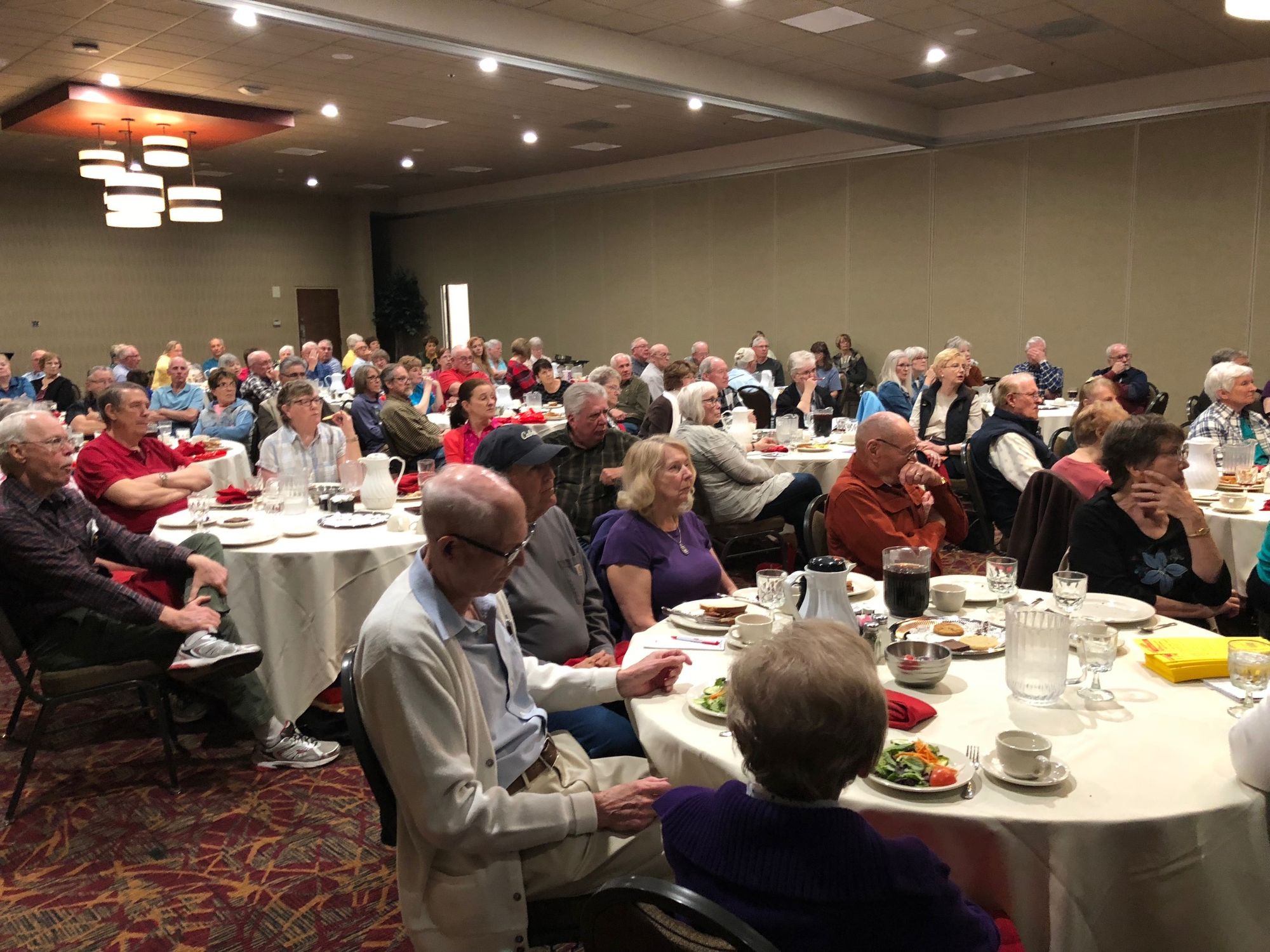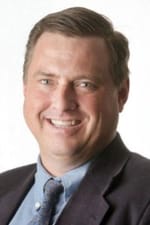As the Baby Boomer generation ages and financial exploitation of the elderly increases, the state of South Dakota is taking an aggressive approach to fighting fraud against the elderly and has suddenly become a national leader in catching scammers and preventing victimization.
South Dakota has one of the nation’s only statewide prosecutorial teams focused solely on financial crimes against the elderly. Meanwhile, a host of groups dedicated to protecting older residents – including local law enforcement and judicial offices, social services agencies, financial institutions, nursing homes and elder advocacy groups — have formed an unofficial but committed coalition to battle back against elderly scams and scammers in South Dakota.
After years of victims suffering in silence, mechanisms are now in place in South Dakota to make it easier to report crimes and also to prosecute offenders.
“We’re ahead of the game here in South Dakota,” said Michael Sharp, the statewide prosecutor who works solely on financial crimes against the elderly.
South Dakota began ramping up its efforts to protect its elderly population in 2015, when the chief justice of the state Supreme Court convened a task force to study elder abuse and exploitation. The group put forth 16 recommendations, several of which have become law.
One tangible result was the formation of the two-person team in the state Attorney General’s Office dedicated to investigating and prosecuting fraud and rip-offs against elderly South Dakotans. Since forming in July, 2016, the team has received 790 complaints and landed 10 convictions.
Sharp, the head of that team, addressed the National Association of Attorneys General in April in Kansas, where he shared his fraud-fighting techniques with 100 top law enforcement officials from around the country. “There’s not many units in the country like ours, though everybody wants one,” Sharp said. “They’ve taken notice of our cases and want to hear about them.”
Those on the front lines of the battle against elder fraud have their work cut out for them.
With a rapidly growing population, a tendency to save rather than spend and a generally trusting nature, elderly South Dakotans are increasingly being targeted by scammers.
Advocates say that many older South Dakotans, especially those in rural areas, are more trusting and less technologically savvy than younger generations. They also tend to have more assets and their numbers are rising quickly as Baby Boomers age and people generally live longer.
That combination creates an inviting fold for strangers, unscrupulous family members or caretakers to prey upon older South Dakotans.
“We know that there’s always going to be frauds and scams out there, so it’s a never-ending battle,” said Erik Nelson, advocacy director and lobbyist for AARP of South Dakota. “The bad guys are always one step ahead.”

‘Complex financial crimes’
Cora Van Olson’s mother clearly trusted her.
Relegated to a nursing home, Van Olson’s mother signed over power of attorney to her daughter in 2011, relinquishing all rights to her substantial nest egg.
But Cora Van Olson, a 51-year-old Yankton resident, violated that trust in 2014, prosecutors say, by stealing more than $70,000 from her mother’s savings and later by defrauding Medicaid of $25,000 in her mother’s name to fuel her own higher lifestyle. Van Olson pleaded guilty in 2017, served 120 days in jail and has to pay the stolen money back.
With a vulnerable victim, a close confidant as perpetrator and a complex financial fraud that broke laws in both South Dakota and Nebraska, the Van Olson case is typical of many elder fraud cases.
Elder exploitation has often been called a “silent crisis” because victims are either ashamed, see little chance for recourse or are reluctant to file complaints or prosecute when they discover the suspect is someone close to them. According to the National Center on Elder Abuse, a study of 4,156 elderly exploitation cases found that 58 percent of perpetrators were family members, followed closely by friends, neighbors and home-care providers.
“It’s a very hard realization to come to, because nobody wants to believe that someone they trust has stolen from them,” Sharp said. “The people victimized aren’t going to be trumpeting what happened, so they suffer in silence.”
The number of South Dakota residents age 65 or older is estimated to grow in both rural and urban areas, from about 100,000 in 2010 to 225,000 by 2035. One federal government study estimates that more than a third of all Americans over 65 will be the victim of fraud at some point in the next five years. Overall, 3.2 million older Americans were known victims of fraud in 2014, with total annual losses estimated in one study at $3 billion and as high as $36 billion in another.
Accurately gauging the number and extent of financial crimes against the elderly is made more difficult because the federal government and most state and local law enforcement agencies do not break out data on the age of crime victims.
Those who fight exploitation say it is on the rise in South Dakota and is now the focus of a multi-pronged effort to catch suspects and prevent victimization.
Prosecutor Sharp is on the front lines of that fight.
Sharp, 34, is a married father of two in Pierre who was an attorney in the state Department of Social Services in 2016 when he was tapped to become the state’s first elder exploitation prosecutor. He remembers when he started in the job, “I had a note pad and a pen, and I had a great office and nothing to do.”
The lethargy of his new job didn’t last long. Once word of the new unit got out in South Dakota, tips about elder fraud began to pour in from private attorneys, police and sheriff’s offices and occasionally from victims.
On a recent Friday, Sharp had received six new complaints to his office by 10 a.m. Every tip or complaint is logged and reviewed, and local authorities are always made aware, he said.
Sharp and his one investigator, stationed at a state office building in Aberdeen, soon realized the prevalence of fraud but also the difficulty in obtaining convictions.
A typical case might involve scouring 5,000 to 15,000 pages of financial records, and interviewing dozens of witnesses, suspects and victims. Some cases cross over state or county jurisdictions and almost all involve cooperation from multiple municipal and county investigators and prosecutors. “It’s all-hands-on-deck in these cases,” Sharp said.

Cases are further complicated because most elderly exploitation incidents involve small thefts or scams that take place over a significant period of time, and perpetrators go to great lengths to hide their crimes. To make progress on cases, Sharp follows one simple mantra: “Follow the money.”
Scams may include theft from bank or checking accounts, unauthorized withdrawal of retirement funds, forced sales of assets like cars or homes, and even misappropriation of land ownership.
“We have to determine where the money is going, where it came from, what it’s being spent on, and that can lead us in a number of different directions,” Sharp said. “We follow all of that to see where the thefts are occurring.”
Experience has taught Sharp some commonalities among elder exploitation cases.
Some victims are subject to coercion in which a family member or person in control of their finances will threaten to limit their mobility or put them in a home if they don’t hand over money or do as told. Some victims are afraid to complain because that act could threaten their freedom or independence. Other older victims may not even realize they are being ripped off.
“We are looking at statistically the largest concentration of wealth in one age group that we have ever seen in the history of the United States,” Sharp said. “And they were raised in a different generation, where you can be trusting, and unfortunately there are people willing to take advantage of that.”
That happened in the fraud perpetrated against an 85-year-old grandfather in Florence, S.D., whose stolen checkbook was used in 2017 by his grandson to write more than $185,000 in bogus checks. The grandfather was shuttled from his nursing home to a courtroom to testify against his grandson, who is now in prison.
The elderly exploitation team was funded by the 2016 South Dakota Legislature for about $200,000 a year. This spring, lawmakers proposed cutting the positions after the initial funding source dried up, but Attorney General Marty Jackley shifted funds away from the consumer division to save the positions, agency spokeswoman Sara Rabern said.
Tips to help avoid elderly exploitation:
- Seniors should be aware and skeptical; know that you may be targeted.
- Ask phone or door-to-door solicitors for something in writing with letterhead.
- Never give your credit card, banking, Social Security, Medicare, or other personal information over the phone unless you initiated the call.
- Shred all receipts or documents with Social Security numbers or date of birth
- Sign up for the Do Not Call Registry.
- Do not make quick decisions. If something sounds too good to be true, it is probably fake.
- Children of elderly parents should stay involved and get to know parental finances to watch for unusual activity or unexpected bills or solicitations.
- Perform background checks on all caregivers or elderly care facilities.
- Elderly people cared for by family or caretakers should open their own mail, keep a watchful eye on their finances, and report anything suspicious.
- Relatives of an elderly person cared for by another family member should watch for behavior changes, such as defensiveness or isolationism, by the caregiver. Keep communication lines open.
‘Knowledge is power’
Retired South Dakota schoolteacher Evelyn Lenton has an elderly friend who was scammed out of $400,000 by a man she met online who claimed to love her but broke every promise he ever made.
Lenton refuses to be a victim herself. On an afternoon in April, she and a retired friend attended a fraud prevention seminar at a Rapid City hotel to steel themselves against what Lenton said is an almost daily barrage of robocalls or attempts to illegally separate the women from their money.
“I’m always open to learning about the next thing out there because knowledge is power,” Lenton said outside the event sponsored by AARP of South Dakota. “These scammers are smart and I want to know what their next move is.”
AARP is one of several groups that have recently energized efforts to not only hold scammers accountable, but also to teach people to avoid becoming victims in the first place.
The Cyber Security Seminar attended by Lenton was part of a statewide barnstorming by AARP to help the 50-plus crowd fight back against fraud. At the seminar, one of a dozen events held around the state in April, about 200 patrons were treated to lunch and education on how to spot, avoid and report fraud. One segment featured video testimony by a former phone scammer who said he manipulated call recipients until they reached “the ether,” a state where they lowered their guard and became comfortable discussing finances or giving account information. “I’m no longer a predator, I’m just Jim from New York,” he said in the video.
Common scams include calls informing people they have won the lottery in Africa but need to send a smaller amount in order to claim their prize. A new and fairly frequent ploy is a phone call from Mexico in which a stranger tells an elderly person that a family member is in jail or in the hospital and needs cash quickly to get them free or be treated.
Other scams are seasonal. In February and April, tax scams are used to rob people of their money or get their Social Security numbers to perpetuate identify theft. During summer, scammers often bid home improvement jobs and run off with up-front money, said Nelson of AARP.
Anti-fraud outings by AARP this spring included free mobile paper-shredding where people drive up and drop off documents containing personal or financial information. A shredding event in Sioux Falls in early April led to destruction of nearly 6,000 pounds of documents, Nelson said.
In addition to creation of the statewide prosecutor and investigator, another less tangible outcome of the 2015 Elder Abuse Task Force was to facilitate communication and problem-solving among a number of existing South Dakota agencies and groups that work to protect older residents, said task force member Tim Neyhart.
Neyhart runs Disability Rights South Dakota, a statewide agency with offices in Sioux Falls, Rapid City and Pierre that receives federal funding to protect disabled residents from physical abuse or financial exploitation.
Neyhart said the group works to protect the state’s most vulnerable residents, the elderly who also suffer from degenerative mental or physical conditions. Oftentimes, that means investigating family members or unrelated agents who have authority over a client’s Social Security funds.
Neyhart’s group recently learned that the latest spending bill passed by Congress will provide $25 million in new funding and give more legal authority to state groups like his to investigate Social Security payee relationships in a search for fraud.
“The possibility always exists that payees can misspend people’s Social Security allotments, which they’re supposed to spend on food, clothing and shelter,” Neyhart said. “That’s true particularly with older folks who acquire dementia or a condition that affects their ability to remember or manage their affairs.”
Neyhart said he sees more cooperation among advocacy groups and the state to fight on behalf of South Dakota’s elderly population.
“We’re talking about how we can all work together to make it happen,” he said.
How to get help
Here are some numbers to call to help prevent or report fraud or abuse. Experts suggest anyone with a fraud complaint or concern should always contact their local law enforcement agency in addition to using any of these resources. If someone is in immediate danger, please call 911.
- South Dakota Attorney General’s Office investigation division; 605-773-3331
- South Dakota Department of Human Services; 866-854-5465
- AARP National Fraud Watch Hotline; 877-908-3360
- National Do Not Call Registry sign-up; 888-382-1222
- National Council on Aging helpline; 800-677-1116




